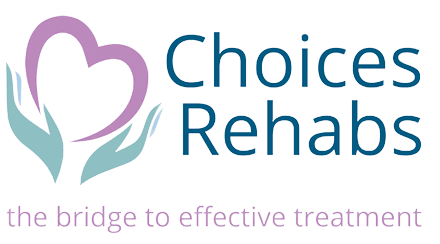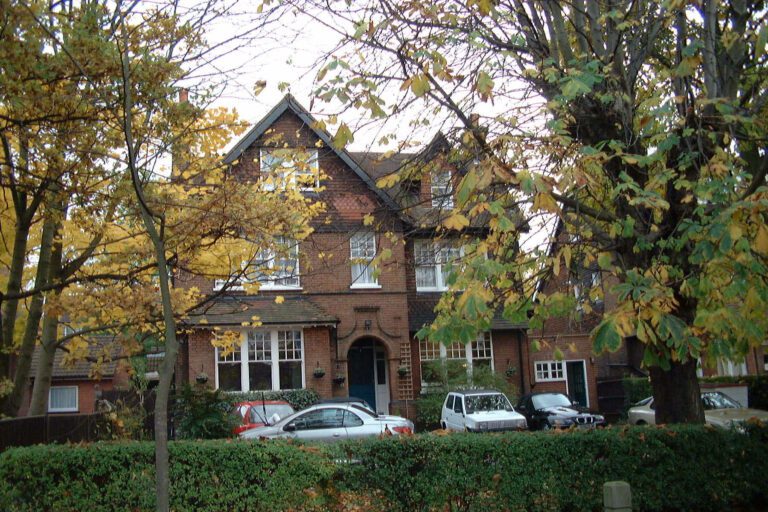The Choices network offer all sorts of treatment from 12 steps to CBT for substance and behavourial addiction.
Alcohol and drug addiction is an illness.
We run a number of rehabilitation programmes to help you overcome addiction and get back control of your life. Our programmes and what they entail are outlined below and each of these can be tailored to meet your needs. We don’t expect you to know exactly what you require and that’s where we can help whatever your situation.
Our programmes are compassion focused and abstinence-based designed to nurture your mental, emotional and spiritual wellbeing. Designed to help you understand your addiction, identify thee underlying causes and face other issues that you have struggles with. We want you to move forward with your life without relying on alcohol or drugs as a coping mechanism. Your attitudes, neliefs and behaviours will be challlenged in a safe, caring and non-judgmental environment and you’ll be supported to explore and develop new ways to manage how you feel. Developing tool to be ablel to sustain your recovery for the long-term is the ultimate goal.
We run a number of rehabilitation programmes to help you overcome addiction and get back control of your life. Our programmes and what they entail are outlined below and each of these can be tailored to meet your needs. We don’t expect you to know exactly what you require and that’s where we can help whatever your situation.
To get in touch with a member of our team email us at
How Does the 12 Step Programme Work?
Drug and alcohol addiction is a chronic condition that can have devastating effects on a person’s life. The 12-step treatment approach has been widely used to help individuals overcome addiction and achieve sustained recovery. This article will explore the 12-step treatment in detail and discuss its effectiveness in treating drug and alcohol addiction.
What are the 12 Steps?
The 12 steps were first introduced by Alcoholics Anonymous (AA) in the 1930s and have since become the basis for many addiction treatment programmes. They are a set of guidelines that outline a path to recovery and are designed to be followed in sequence and used as a framework for a person’s recovery journey.
The 12 steps are as follows:
- We admitted we were powerless over alcohol—that our lives had become unmanageable.
- Came to believe that a Power greater than ourselves could restore us to sanity.
- Made a decision to turn our will and our lives over to the care of God as we understood Him.
- Made a searching and fearless moral inventory of ourselves.
- Admitted to God, to ourselves, and to another human being the exact nature of our wrongs.
- Were entirely ready to have God remove all these defects of character.
- Humbly asked Him to remove our shortcomings.
- Made a list of all persons we had harmed, and became willing to make amends to them all.
- Made direct amends to such people wherever possible, except when to do so would injure them or others.
- Continued to take personal inventory and when we were wrong promptly admitted it.
- Sought through prayer and meditation to improve our conscious contact with God as we understood Him, praying only for knowledge of His will for us and the power to carry that out.
- Having had a spiritual awakening as the result of these steps, we tried to carry this message to alcoholics, and to practice these principles in all our affairs.
How Does the 12 Step Programme Work?
The 12-step programme is based on the principles of accountability, support, and spiritual growth. Participants are encouraged to take responsibility for their actions and to seek support from others in recovery. The programme also places a strong emphasis on spirituality, with individuals encouraged to develop a connection with a higher power.
This approach is not a one-size-fits-all when it comes to addiction treatment. Participants are encouraged to work through the steps at their own pace and to tailor the programme to their individual needs and beliefs. The programme is also flexible, allowing people to make changes and adaptations as needed.
The programme should be considered as a way of life. Participants are encouraged to live their lives in accordance with the principles outlined in the steps, even after they have achieved sustained recovery.
Additionally, the 12-step programme provides a sense of community and belonging for individuals in recovery. By connecting with others who are facing similar struggles, participants are able to find comfort and support in a community of people who understand their experiences. The programme also offers a way for individuals to give back and support others in recovery, which can help to build self-esteem and foster a sense of purpose.
One of the key benefits of the 12-step programme is its focus on personal growth and self-reflection. Participants are encouraged to take a searching and fearless moral inventory of themselves, which can help them to understand the underlying causes of their addiction and develop new coping strategies. This focus on personal growth and self-reflection can also help individuals to build resilience and develop healthy coping mechanisms for dealing with the challenges and stressors of everyday life.
Another benefit of the 12-step programme is its accessibility. The programme is free and widely available, with meetings held in many communities around the world. This accessibility makes the programmeme an option for individuals who may not have access to other forms of addiction treatment. Furthermore, the programme is open to individuals from all backgrounds and beliefs, making it a truly inclusive option for those in need of help.
Benefits of the 12 Step programme:
Provides a clear path to recovery: The 12 steps provide a clear and structured path to recovery, helping people to understand what they need to do to overcome their addiction.
Offers support and encouragement: The programmeme is a supportive community of individuals who are all working towards the same goal. Participants are encouraged to offer support and encouragement to each other, helping to create a strong sense of community.
Promotes accountability: The 12-step programme emphasises personal responsibility and accountability, helping individuals to take control of their lives and make positive changes.
Encourages spiritual growth: The 12-step programme places a strong emphasis on spirituality
The 12-step treatment approach has been a valuable tool in the fight against drug and alcohol addiction for many years. Its clear and structured path to recovery, along with its emphasis on support, accountability, and spiritual growth, has helped countless individuals overcome their addiction and achieve sustained recovery. While the 12-step programme may not suit everyone, its flexibility and adaptability make it an accessible option for individuals with varying beliefs and needs. The principles outlined in the 12 steps can serve as a foundation for a meaningful and fulfilling life in recovery. Overall, the 12-step treatment approach remains a valuable and effective tool in the fight against addiction.



